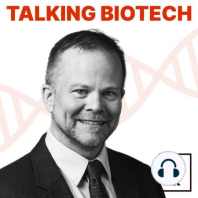61 min listen
Edible Cotton Seed
ratings:
Length:
45 minutes
Released:
Oct 19, 2019
Format:
Podcast episode
Description
Cotton production is massive, but mostly used for fiber. The cotton seed is a tremendous potential resource as it contains high amounts of oil and high-quality protein. However, the seeds are not directly edible by most mammals because they contain a toxic chemical called gossypol. Gossypol is a terpenoid that the plant produces as a natural insecticide. A team led by Dr. Keerti Rathore at Texas A&M University has worked for decades to produce cottonseed without gossypol. The plants have now been approved for production by USDA-APHIS and the FDA. The technology may now be used to produce new cotton lines that generate massive amounts of high-protein seed, leading to new human food and animal feed, ultimately benefitting farmers, the environment and the food insecure.# COLABRATalking Biotech is brought to you by Colabra – an R&D platform that brings your lab’s world-changing research together in one shared space. Learn more at https://www.colabra.app/# TALKING BIOTECHTwitter: https://twitter.com/talkingbiotechWebsite: https://www.colabra.app/podcasts/talking-biotech/Instagram: https://www.instagram.com/colabrahqThe Talking Biotech podcast is distinct from Dr. Kevin Folta's teaching and research roles at the University of Florida. The views expressed on the show are those of Dr. Folta and his guests, and do not reflect the opinions of the university or Colabra.
Released:
Oct 19, 2019
Format:
Podcast episode
Titles in the series (100)
Biotechnology in Uganda; Reflections on a Public Discussion: This week features two discussions with fellows serving in the Global Leadership Program of the Cornell Alliance for Science. The first part is a discussion with Nassib Mugwanya, Outreach Leader for the Ugandan Biosciences Information Center. He discuss by Talking Biotech with Dr. Kevin Folta
